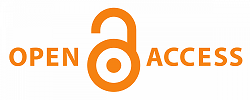Evaluation of Student Reimbursement System for Research Prototypes: Adopt-A-Prototype Program
Abstract
Educational institutions worldwide were forced to temporarily close and rely on distance education as a substitute for face-to-face instruction. With the aim to continue the provision of quality education, numerous educational institutions preferred the online delivery mode. Apart from online learning, most public schools, particularly those in rural areas, use modular learning modalities. One of the United Nation’s Sustainable Development Goals is to “ensure inclusive and equitable quality education and promote lifelong learning opportunities for all” learners. However, studies revealed that this intervention showed that there is a decline in the quality of education meant for students. The lack of financial capability of students from rural areas challenges this goal of providing quality education. To address this gap, the researcher of the current study examined the current financial status of students of two subjects in the Senior High School K-12 Program: Inquiries, Investigations, and Immersion (I3) and Practical Research I. Upon determining the lack of financial support to making the subject’s required output (research prototype), the researcher initiate an innovative student reimbursement program, Adopt-a-Prototype, in which private linkages has become part of the research process through sponsorship (adoption) of their work-in-progress (WIP) research prototypes. The innovative reimbursement program has been evaluated by the SHS learners and presented in this descriptive mixed-method research.
References
Cardullo, V., Wang, C. H., Burton, M., & Dong, J. (2021). K-12 teachers’ remote teaching self-efficacy during the pandemic. Journal of Research in Innovative Teaching & Learning.
Karalis, T. (2020). Planning and evaluation during educational disruption: Lessons learned from Covid-19 pandemic for treatment of emergencies in education. European Journal of Education Studies.
Manlangit, P., Paglumotan, A. M., & Sapera, S. C. (2020, October 5). Nanay, handa na ba kayong maging tagapagdaloy? Supercharging Filipino parents is key for successful modular distance learning. Flip Science. https://www.flipscience.ph/news/featuresnews/tagapagdaloy-modular-distance-learning/
Opara, V., Spangsdorf, S., & Ryan, M. K. (2023). Reflecting on the use of Google Docs for online interviews: Innovation in qualitative data collection. Qualitative Research, 23(3), 561-578.
Slavin, R. E. (2020). How evidence-based reform will transform research and practice in education. Educational Psychologist, 55(1), 21-31.
Yamada, E., Shimizutani, S., & Murakami, E. (2021). The COVID-19 pandemic, remittances and financial inclusion in the Philippines. Philippine Review of Economics, 57(1), 18-41.





